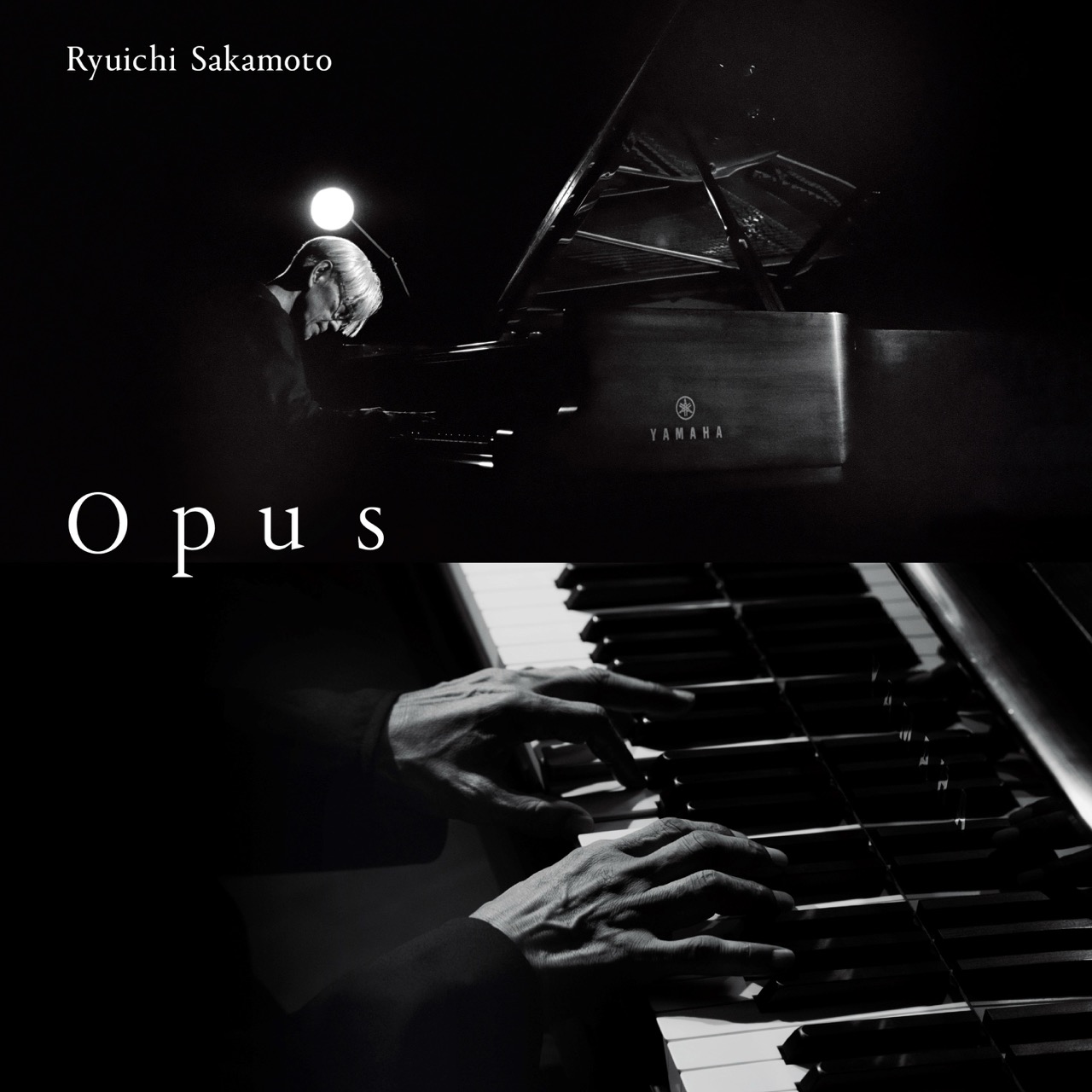'Opus': Ryuichi Sakamoto's Final Departure
The summation of a life's work
Ryuichi Sakamoto once again sits down at a Yamaha piano in NHK’s Tokyo studio. Microphones and cameras are set up as normal, just like the other times he’s played here. He performs 20 compositions, alone as usual by now. The result, Opus, was at least the third time this decade that he filmed (and saved) a solo piano performance.
Yet these sessions in late 2022 were the composer’s final performances of the repertoire that over nearly five decades built, cemented, and advanced his legacy. About a month later, in January 2023, on his 71st birthday, he released 12, his final new studio LP. Two months later, on March 28th, he died of rectal cancer.
In his final decade, Ryuichi Sakamoto was acutely aware of mortality, his work marked with an ever-present finality. From his initial cancer diagnosis in 2014, he understood that any project could be his last, and thus his late-career explorations bear a certain weight. He was the only one he had to prove anything to: his career was a project with many potential endings, none of them a perfect finish precisely because he never stopped moving forward. Sakamoto’s greatest solo album, 2017’s async, was the triumphant pinnacle of his lifelong effort to balance ambient electronics and classical composition. That full sensory experience of astounding transcendence is a striking opposite to the following 12, a bleak and desolate “sound diary” kept during his second battle with cancer. 12 searches for something intangible amidst its reverberant expanse, until it resigns to the unfulfilled conclusion of his fate.
At the same time, Sakamoto reflected on his past with a new preservational urgency. He finally released official sheet music of his signature compositions, and also created a “virtual self” to play piano forever in the somewhat clunky augmented reality piece KAGAMI. Yet Opus, released as a film directed by his son Neo Sora (recently added to the Criterion Channel) and now as an album from Milan Records, is Sakamoto’s most significant retrospective work, truly the final musical thing he ever did. By the time he recorded it, it took every ounce of his energy to play. He slows down many of the songs. He’s caught in the film needing to take a break and redo “Bibo No Aozora.” He makes subtle mistakes throughout the performances, captured over a few days. This is Ryuichi Sakamoto, at his end, stripped down to what’s left of his core abilities.
The 20 pieces on Opus, organized for a “day to night” flow, range from his work with Yellow Magic Orchestra (“Tong Poo”) to his most famous theme songs for film (the songs for Nagisa Ōshima’s Merry Christmas Mr. Lawrence and Bernardo Bertolucci’s The Last Emperor and The Sheltering Sky) to his late-period work from async and 12. There are also deep cuts along the way: his only solo piano interpretation of the Lack Of Love video game theme, songs dedicated to Bertolucci (“BB,” first premiered in KAGAMI) and composer Jóhann Jóhannsson, and a previously unheard prepared piano piece from 2018 (“20180219”).
I caught Opus (the film) at my local independent cinema. Shot in black and white, the film shows nothing but Sakamoto at the piano for an hour and 45 minutes, captured as a series of slowly roving long takes. Neo Sora’s direction emphasizes the intentionality and effort behind each note of Sakamoto’s playing; it’s the concert film as slow cinema, slow cinema as concert film (perfect for Sakamoto, who envisioned async as the soundtrack to a non-existent Tarkovsky work). There’s tremendous importance in Opus’ legitimate finality, though it demands patience and devotion. Existing Sakamoto loyalists will be greatly moved, even if newcomers end up appreciative but antsy to leave the theatre.
The performances are good as always, though even I’d say that the gravity of this project overshadows the actual quality. Sakamoto’s playing becomes labored and choppy, his hands frail and trembling. The set list is particularly effective in how these more meditative pieces are so flexible to interpretation; their main focus is melodic rather than rhythmic, so the slower, mournful pace is fine. He conjures something beyond description when he plays “Merry Christmas Mr. Lawrence” for the last time. The piece that brought him international recognition and launched one of the most enduring facets of his career, a melody he played countless times in several variations, performed by him once more then never again. I felt the emotional heft during Opus the film, though I think its significance is lost on the album. The visual image of Sakamoto playing this, and the amount of effort he expends doing it, might be the essence of Opus. Even when you hear his breathing on the album, it doesn’t replicate the effect.
Yet is Opus the best he ever played the selected compositions? I remain skeptical. These are valid renditions, but I think Sakamoto’s earlier, more graceful, more produced versions will always be definitive. Opus is very important in context, but that doesn’t make it his best, nor do I think that was the point. It’s the absolutely worthwhile summation of his life’s work, and we remember him as a groundbreaking creative who kept going until the very end. Opus is more valuable as a document than as a defining statement, and as a document it’s as beautiful and bittersweet as one could hope for.
So far there is no physical release of Opus in any format, though Dolby Atmos and 96kHz/24bit stereo releases come out this week. The recording is spacious and tonally correct, as expected from engineer ZAK who also recorded and produced Fishmans’ finest (and finest sounding) albums. The Atmos mix (based on the advance single of “Tong Poo”) is very tasteful, and would surely sound even better in a lossless codec. Hopefully there’s an eventual Blu-ray of the film with a lossless encode of the Atmos mix, but so far there’s no official information. (If it does happen in the US, it’d almost certainly drop through Criterion’s Janus Contemporaries line, since Janus distributed the theatrical release.) For now, however, the stereo mix on DSPs is excellent, and considering the mediocre pressing quality of Sakamoto’s recent Japanese vinyl releases, digital will more than suffice.









































.png)








